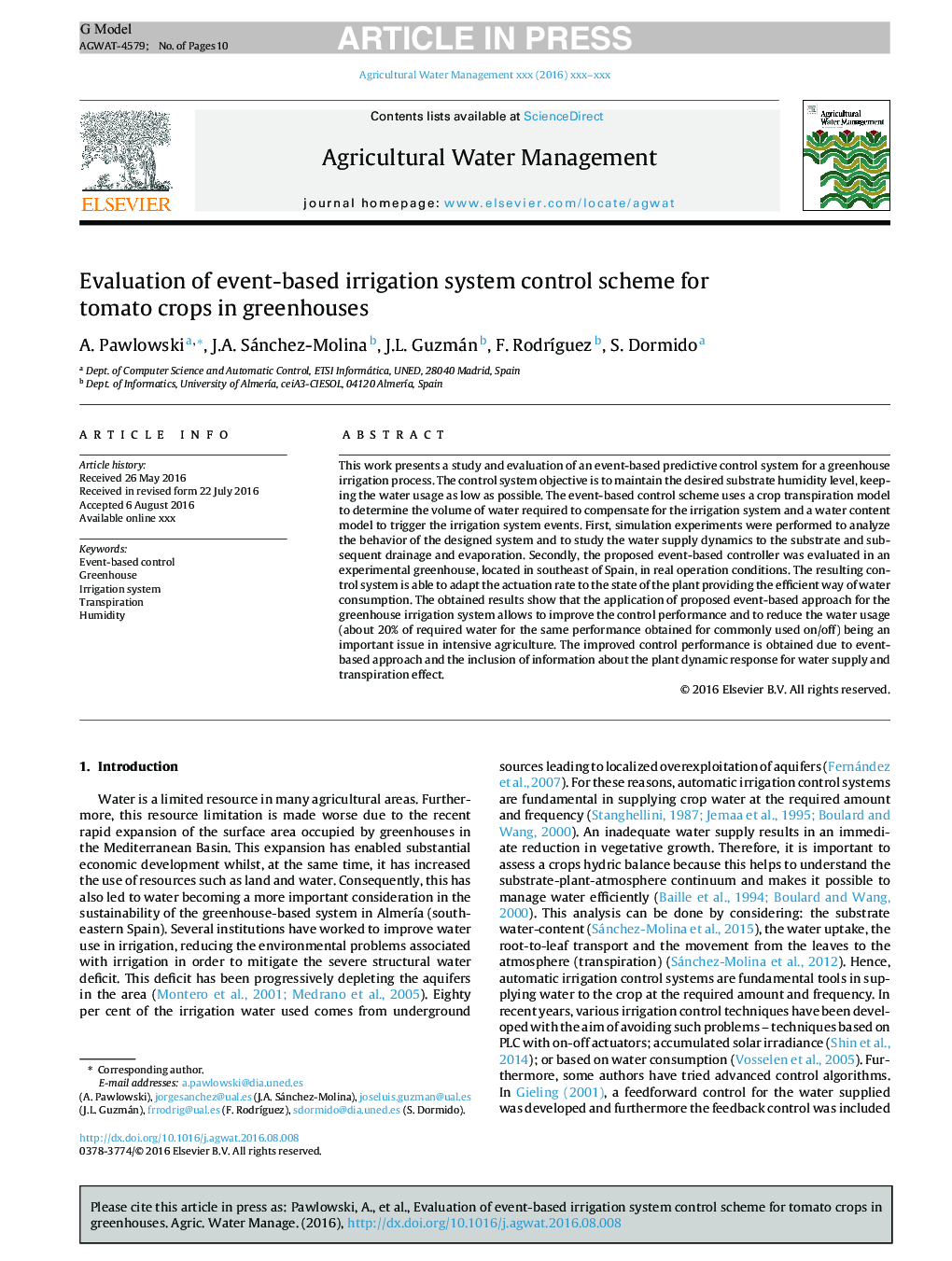| Article ID | Journal | Published Year | Pages | File Type |
|---|---|---|---|---|
| 5758354 | Agricultural Water Management | 2017 | 10 Pages |
Abstract
This work presents a study and evaluation of an event-based predictive control system for a greenhouse irrigation process. The control system objective is to maintain the desired substrate humidity level, keeping the water usage as low as possible. The event-based control scheme uses a crop transpiration model to determine the volume of water required to compensate for the irrigation system and a water content model to trigger the irrigation system events. First, simulation experiments were performed to analyze the behavior of the designed system and to study the water supply dynamics to the substrate and subsequent drainage and evaporation. Secondly, the proposed event-based controller was evaluated in an experimental greenhouse, located in southeast of Spain, in real operation conditions. The resulting control system is able to adapt the actuation rate to the state of the plant providing the efficient way of water consumption. The obtained results show that the application of proposed event-based approach for the greenhouse irrigation system allows to improve the control performance and to reduce the water usage (about 20% of required water for the same performance obtained for commonly used on/off) being an important issue in intensive agriculture. The improved control performance is obtained due to event-based approach and the inclusion of information about the plant dynamic response for water supply and transpiration effect.
Related Topics
Life Sciences
Agricultural and Biological Sciences
Agronomy and Crop Science
Authors
A. Pawlowski, J.A. Sánchez-Molina, J.L. Guzmán, F. RodrÃguez, S. Dormido,
